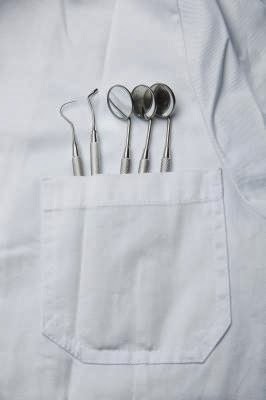This three-part article series explains why tooth extractions are sometimes necessary and what patients can expect from this straightforward surgical procedure.
Welcome the final installment of our three-part article series on tooth extractions, why they’re sometimes necessary and what New Jersey residents can expect from the experience. In our previous two article posts, we spoke to a panel of teeth implants surgeons in New Jersey about why teeth extractions are sometimes recommended and what the procedure entails. It was thankfully explained that this procedure, although typically very simple and straightforward, is usually performed under the effects of a local and/or general anesthetic, thus preventing patients from experiencing any pain.
We have just a couple of questions left for our dental implant experts before we allow them to return to their surgeries, so let’s get cracking…
What should and shouldn’t I do after I’ve had a tooth pulled?
 “The length of recovery and the degree to which it is recommended that you keep your feet up depends heavily upon the nature of the procedure you’ve just undergone,” explain the NJ dental implants surgeons. “For example, if your child has had a decayed primary or baby tooth removed, typically recovery is quick and with minimal discomfort, save perhaps for a little treat to reward them for their bravery. If you’ve had an adult decayed tooth extracted, you may want to avoid certain strenuous activities and tough foods for 24 to 48 hours to prevent bleeding.”
“The length of recovery and the degree to which it is recommended that you keep your feet up depends heavily upon the nature of the procedure you’ve just undergone,” explain the NJ dental implants surgeons. “For example, if your child has had a decayed primary or baby tooth removed, typically recovery is quick and with minimal discomfort, save perhaps for a little treat to reward them for their bravery. If you’ve had an adult decayed tooth extracted, you may want to avoid certain strenuous activities and tough foods for 24 to 48 hours to prevent bleeding.”
“Then, if you’ve had all of your teeth removed – because you’ve got gum disease and have been diagnosed with a ‘failing dentition’ – you should take a few days off from work and spend a week relaxing. Your recovery will be longer and slightly more complex than it is for those who have only had one or two teeth pulled.”
Can you give us a list of things patients should avoid or shouldn’t do right after having a tooth extracted?
1) Avoid smoking,
2) Don’t eat any hard, crunchy foods,
3) Avoid strenuous activities or exercise,
4) Try not to poke, explore or rub the area with your tongue,
5) Don’t lie with your head flat against the mattress when sleeping… try to keep it elevated by propping it up with pillows. This will help stop the bleeding.
6) Avoid alcohol. It thins the blood and may prolong bleeding.
7) Avoid any strong sucking motions or vigorous gargling as this may rupture the surgical site, causing it to bleed again.
Sounds fairly straightforward, and what about things patients SHOULD do?
1) Take your painkillers as recommended by your teeth implants surgeon in New Jersey. Even if you don’t immediately experience any pain, you should stay one step ahead of it by following the dosage instructions.
2) “After the 24-hour mark, gently rinse with warm salty water every couple of hours. This will reduce the risk of infection, while also reducing infection and relieving pain,” advise NJ dental implants surgeons.
3) Stick to a diet of softer foods, such as soup, gelatin and pudding. As you heal, you can introduce more solid foods.

5) If you’ve been prescribed anti-biotics to help prevent post-operative infection, make sure you finish the course.
A Final Note on Tooth Extractions
“It might sound scary, but having a tooth pulled is really nothing to be terrified about,” say teeth implants surgeons in New Jersey. “Your dentist will make sure that you don’t feel anything and, in any case, it’s typically over within a few minutes. Remember, having a decayed tooth removed can prevent more serious problems further down the line. There’s nothing like an excruciating oral abscess to make you regret a lack of earlier action!”
No comments:
Post a Comment